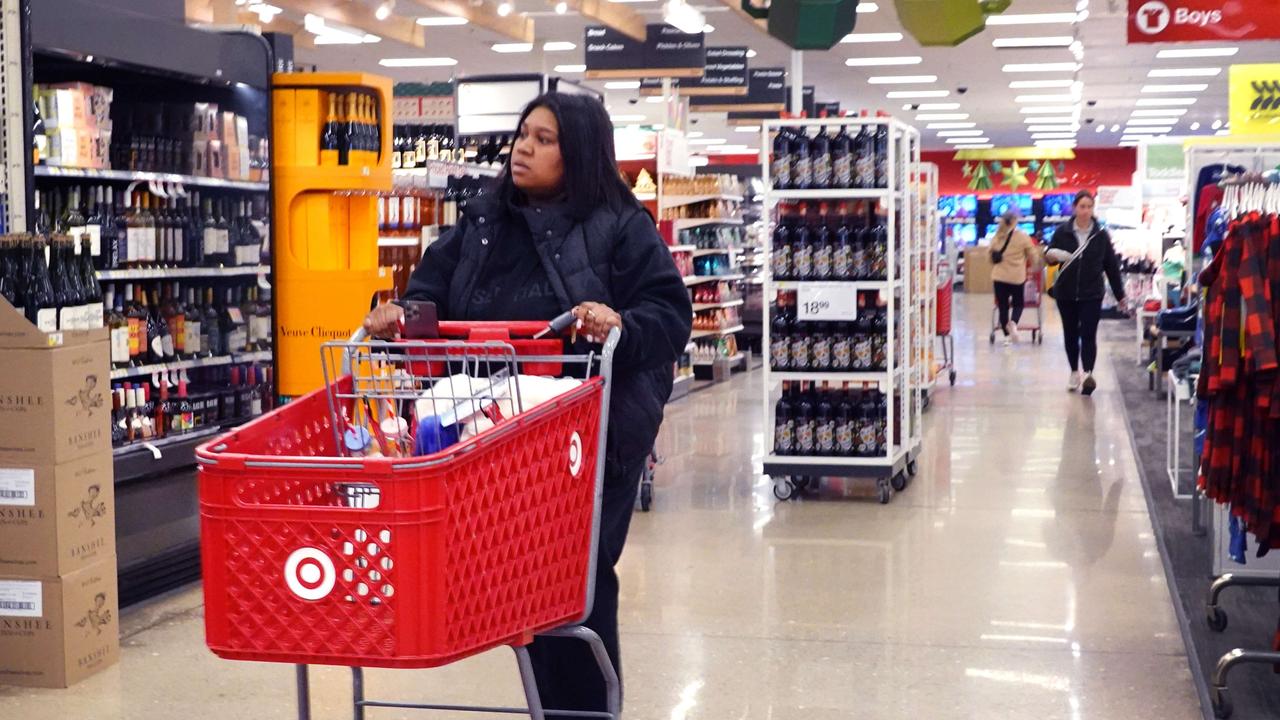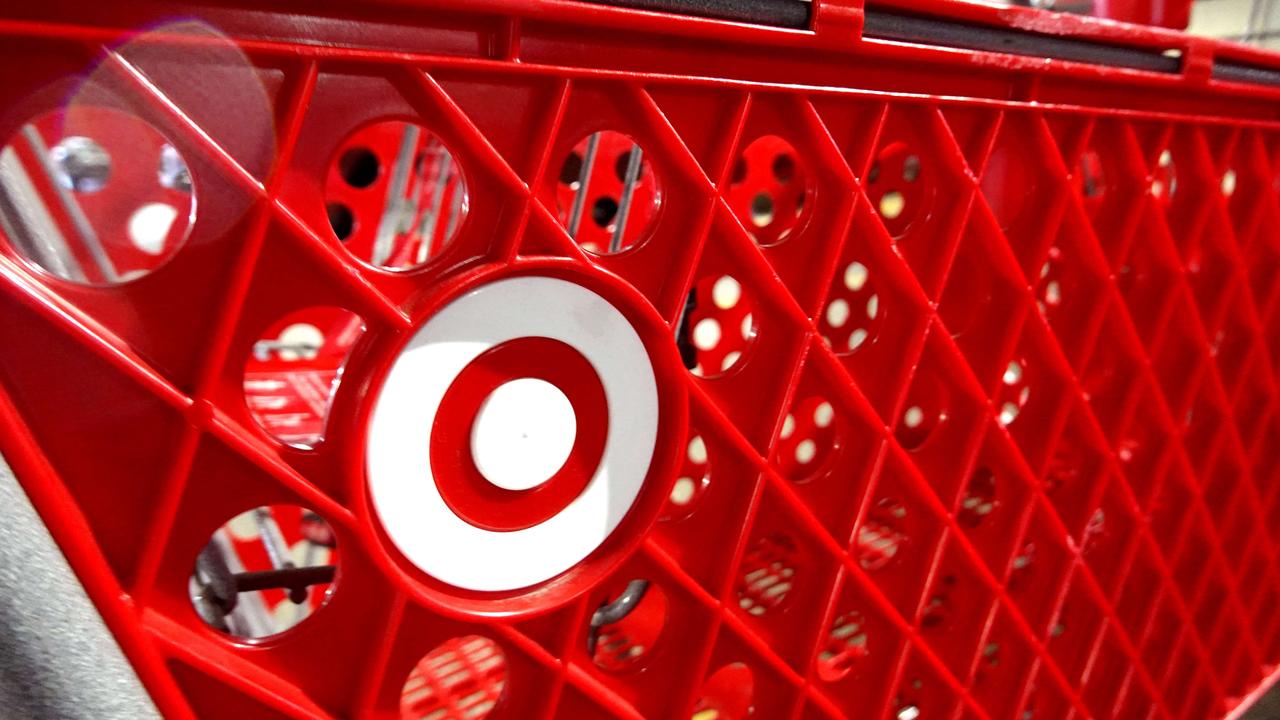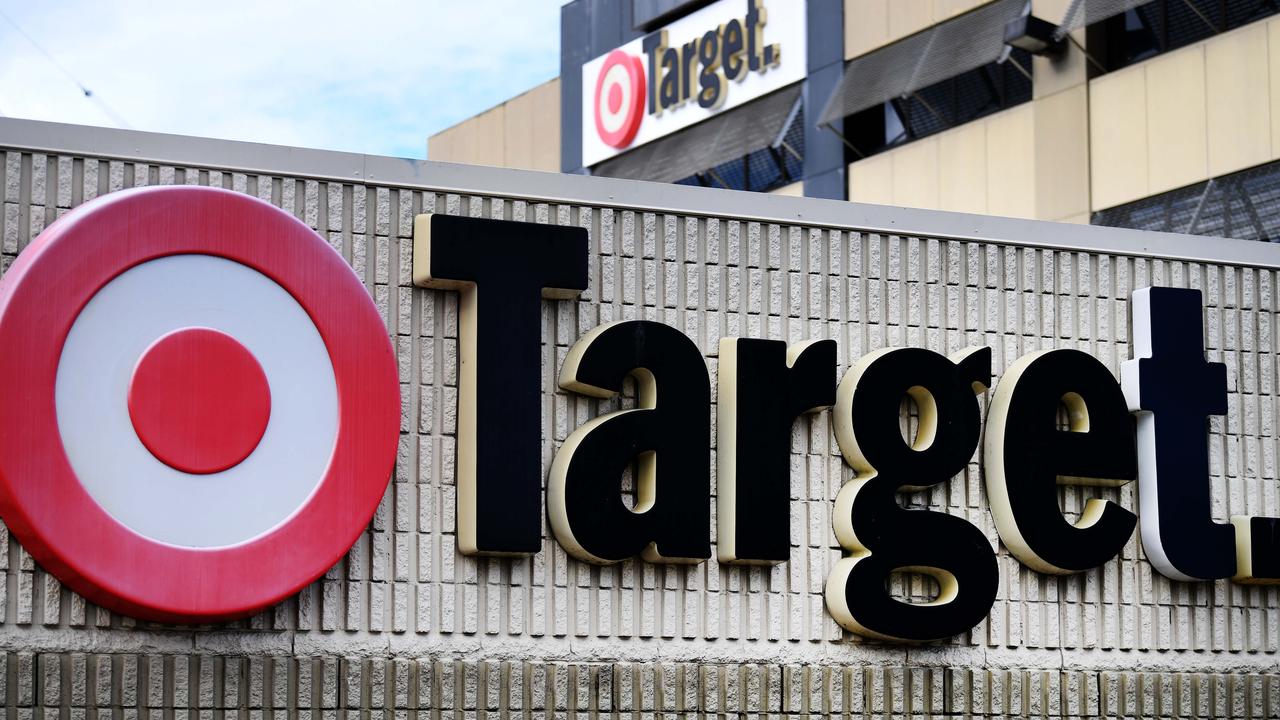Target profits dive by 52% as stressed shoppers worry about cost of living
The cost of living crisis has hit the retail giant hard with “stressed” consumers “pulling back” on spending as they are hit from all sides.
US retailer Target suffered a 52 per drop to its profits in the September quarter and has warned that it also expects a slump in its Christmas sales compared to last year.
The cost of living crisis had caused “dramatic changes” in consumer spending, according to the retailer, which saw its shares plummet by 17 per cent in early trading and later in the day shares were still down 13.4 per cent.
This saw its shares sink to $US155 wiping around $US23 off its share price on the New York Stock Exchange by the close of trade after it reported its struggles.
“In the latter weeks of the [September] quarter, sales and profit trends softened meaningfully, with guests’ shopping behaviour increasingly impacted by inflation, rising interest rates and economic uncertainty,” said Target chairman Brian Cornell.
“This resulted in a third-quarter profit performance well below our expectations.”
Target in Australia is a separate entity owned by Wesfarmers and revealed its results back in August.

Target revealed the crisis has meant introducing an early start to holiday season promotions as shoppers desperately sought discounts, which contributed to its third quarter profits being cut in half.
The retailer is now looking at launching a cost cutting plan to save between $US2 billion and $US3 billion in the next three years, but did not provide details on it, although said lay-offs and a hiring freeze were not one of the current measures.
Mr Cornell said “it’s an environment where consumers have been stressed” resulting in them “pulling back” on spending, with the retailer largely offering discretionary goods such as clothing, home furnishings and electronics which it was forced to discount to clear stock.
“Target makes their money in discretionary spending, so the difficulty in the environment hits harder,” said Bill Smead, chief investment officer of Smead Capital Management, which owns shares worth nearly $US209 million in the retailer.
Its operating income was $US1 billion in the third quarter 2022, down 49.2 per cent from $US2 billion in 2021.

However, it did see a bump in sales in beauty, food, beverages and household essentials.
“This performance demonstrates the durability of our business model, which continues to serve our guests and drive loyalty despite the challenging economic environment,” Mr Cornell said. “We experienced dramatically different trends in the quarter, then deceleration in October and the mix in sales leaned toward promotional items.”
But he added that consumers had become more cautious.
“Many consumers’ options are starting to run out,” he added. “They’re responding to promotions. The second quarter and third quarter came in well below our expectations. Guests moved away from full price purchases.”
The cost of living squeeze has also seen the retailer experience a jump in theft, Mr Cornell said, resulting in more training for staff to combat it over the holidays.
“Looking ahead, we remain laser-focused on delivering the best of Target to our guests, and continuing to invest in our long-term, profitable growth,” Mr Cornell said.

Target has also flagged it expects a decline in Christmas quarter sales as US consumers battle rising borrowing, energy and food costs.
Its expenses also grew in the third quarter to $US125 million compared to $US105 million compared to last year.
Retailers in Australia are also struggling in particular sectors.
Clothing, footwear and personal accessory retailing recorded its largest fall this year, down 2.3 per cent or $68.1 million in August following two consecutive rises, according to the Australian Bureau of Statistics.
The retail giant Wesfarmers, that owns the likes of Bunnings, Kmart and Target, in Australia also recorded a yearly drop in profits in its reported to the market in August.
It showed net profits after tax of $A2.35 billion for the 2022 financial year, a drop of 2.9 per cent.

Wesfarmers managing director Rob Scott said the slump was due to disruptions caused by Covid-19, but the group’s profits increased in the second half of the financial year as lockdowns lifted.
“The group’s retail businesses are well positioned as cost of living pressures impact household budgets and value once again becomes increasingly important to customers,” it said back in August.
“The retail businesses will maintain their focus on meeting the changing needs of customers and delivering even greater value, quality and convenience.”
Kmart’s results, which also included Target and online retailer Catch, saw its revenue drop 3.5 per cent to $A9.13 billion and earnings fall by 39.7 per cent to $A418 million in 2022.






